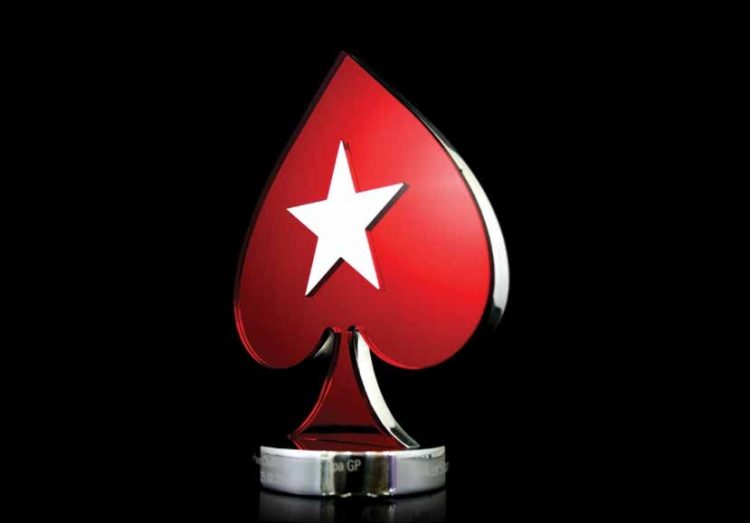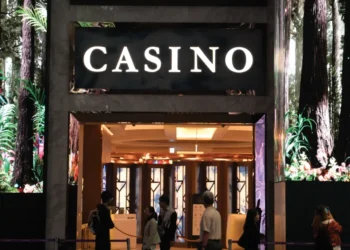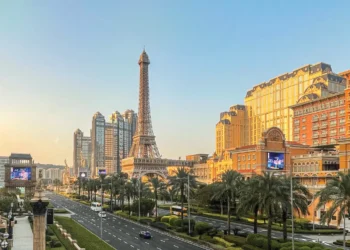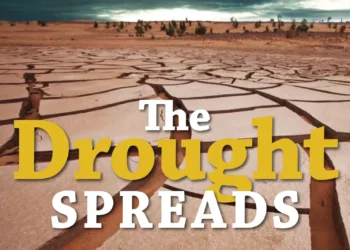For more than a decade the dominant player in the online poker scene, PokerStars has embarked on a rocky road since being bought out by Amaya Gaming in 2014. So what’s going on at this online gaming giant? By Ben Blaschke
To say it’s been an eventful 12 months for PokerStars – by far the dominant player in the world of online poker – would be an understatement.
Having seemingly recovered, for the most part, from the nuclear blast that shook online poker to its very core in early 2011, this poker behemoth again finds itself in unchartered waters in 2017 thanks to renewed questions over its ownership structure and dramatic changes to both its live and online offerings.
So what’s going on at PokerStars?
We’ll preface that question by pointing out that the environment in which PokerStars now operates is far from the worldwide wonderland that saw it flourish through the mid-to-late 2000s. On the back of Chris Moneymaker – the aptly named accountant from Tennessee – parlaying a US$39 World Series of Poker satellite ticket on PokerStars into a US$2.5 million payday by winning the 2003 WSOP Main Event, poker enjoyed a global boom that saw player numbers swell to levels never before imagined.
The WSOP, for decades home to poker’s tournament elite, went from 839 entries the year Moneymaker prevailed to 2,576 in 2004, 5,619 in 2005 and a stunning 8,773 in 2006 with a first prize of US$12 million (won, coincidentally, by another perfectly crafted name in Jamie Gold).
And online poker didn’t miss the boat either. Just a decade after Planet Poker became the first online poker room to offer real money poker on 1 January 1998, the number of active players worldwide had hit an estimated six million with gross revenues across all online sites totaling US$3.5 billion.
But none was better than PokerStars. According to a study published in the UNLV Research and Review Journal in 2011, the company enjoyed global market share of 40.96% by 2010 – double that of nearest competitor Full Tilt and streets ahead of thirdplaced Party Poker at just over 6%. Based on gross revenues, PokerStars’ share of the pie was almost US$1.45 billion annually.
They were a clear favorite among the world’s players, not only because of their natural links to the success of Moneymaker but also their superior, user friendly software and unique marketing strategies.
Then, on 15 April 2011, players the world over woke to find themselves locked out – their PokerStars lobbies replaced by a message stating, “This domain name has been seized by the US Immigration and Customs Enforcement – Homeland Security Investigations, Office of the Special Agent in Charge, Baltimore, Md. In accordance with a warrant obtained with the assistance of the US Attorney’s Office for the District of Maryland.”
Full Tilt, Ultimate Bet and Absolute Poker were also shut down, the quartet accused of illegally circumventing the Unlawful Internet Gambling Enforcement Act (UIGEA) of 2006 which prohibited US banks from processing payments to and from gambling sites.
Needless to say, online poker has never been the same.
Yet PokerStars was the one site to have seemingly ridden out the storm. It was certainly the only one to emerge with any credibility following revelations that had its main rival, Full Tilt, being characterized as operating a Ponzi Scheme – raiding player funds to the tune of US$330 million at the time of discovery. In fact, with players farewelling another US$50 million when the owners of Ultimate Bet and Absolute Poker declared bankruptcy in May 2011, PokerStars even emerged as the industry’s white knight when it struck a deal with the Department of Justice to buy all of Full Tilt’s assets. The US$547 million agreement included a stipulation to repay all non-US players the money they had been owed when Full Tilt was first shut down.
Since then, the PokerStars brand has expanded rapidly. Taking a greater interest in land-based operations, the company’s range of live tours in recent times has included the APPT and ANZPT in Asia-Pacific, the EPT in Europe, the LAPT in South America and NAPT further north – not to mention new poker rooms in Macau and Manila and sponsorship of Melbourne’s prestigious Aussie Millions.
Even without access to US players, PokerStars has continued to dominate the online scene with one 2016 online traffic report calculating an average of 17,000 cash game players using the site each day, compared with just 2,500 players on nearest rival 888poker.
Last March, when New Jersey – one of only three US states to have legalized online poker since Black Friday – also became the first to let PokerStars back in, players instantly swarmed its way and by April it held 45% market share ahead of Borgata/Partypoker with 29% and Caesars/888poker with 26%.
But it hasn’t all been smooth sailing. And much of the goodwill PokerStars built up over the years has dissipated in recent times due to a raft of controversial changes made in the wake of its new ownership.
In June 2014, a previously obscure company called Amaya Gaming Group pulled off a stunning US$4.9 billion deal to acquire PokerStars and Full Tilt from its previous owner, Rational Group. One of the key drivers behind the deal was the fact that PokerStars was considered much more likely to be granted re-entry into the US market under Amaya than under those involved in the scandal that led to Black Friday.

Chris Moneymaker’ remarkable victory at the 2003 WSOP sparked poker’s global boom
“Amaya believes the transaction will expedite the entry of PokerStars and Full Tilt Poker into regulated markets in which Amaya already holds a footprint, particularly the US,” PokerStars announced at the time.
“Additionally, Amaya will provide an extensive selection of its online casino games to expand the Full Tilt Poker casino platform. Amaya intends to strongly support Rational Group’s growth initiatives in new gaming verticals, including casino, sportsbook, and social gaming, and new geographies.”
However, what was initially applauded by players soon deteriorated into accusations of greed after PokerStars announced a raft of changes to its rake and rewards programs. They included valuable Frequent Player Points no longer being offered for high stakes cash games, fewer points being rewarded at some of the lower tiers and the sudden dumping of its prestigious Supernova Elite status for regulars.
In late 2015, around 2,000 higher stakes players opted for a three-day boycott of PokerStars, while a number of the site’s sponsored pros quit, including long-time Team PokerStars Online pro Isaac Haxton.
“I have resigned from PokerStars in protest of the changes to the Supernova and Supernova Elite programs,” Haxton said at the time.
“There’s a lot not to like about these most recent changes and the way they’ve been communicated, but there’s one aspect that I just can’t accept. Announcing in November that players who earned Supernova and Supernova Elite status in 2015 will not receive the benefits they had expected in 2016 strikes me as dishonest and unfair.
“This is a difficult day for me and I’m truly sad to be parting ways like this with a company that I once held in such high regard.”
It wasn’t just at the base level either that controversy began to surround the company. In March 2016, Amaya founder and CEO David Baazov was charged with insider trading by Canadian authorities. Baazov, who was eventually forced to step down from his role with Amaya, is alleged to have used a front to disguise trades in stock of his company in the lead up to Amaya’s purchase of PokerStars.
The case is still ongoing, but that didn’t stop Baazov – who still owns 19% of Amaya – recently attempting to buy-out his former colleagues and take Amaya private. His offer was ultimately rejected although there is no doubt the controversy has left a further bad taste in the mouths of PokerStars’ disenfranchised player base.
There have been other disruptions too. Last year the company closed one of its longest running offices in Sydney, Australia ahead of expected changes to the country’s online gaming legislation that will crack down on overseas operators offering online poker and casino games to Australian-based players.
The legislation hasn’t passed yet, but 888poker has already shut down its Australian site and Amaya CFO Daniel Sebag has stated that PokerStars will likely do the same. Australia accounts for around 2.5% of the site’s global revenue.
At the same time, PokerStars last year said goodbye to their many worldwide poker tours, including the European Poker Tour, Asia Pacific Poker Tour and Australia New Zealand Poker Tour. In their place but offering far fewer opportunities for live tournament enthusiasts in those regions are the newly devised PokerStars Championship and PokerStars Festival, which essentially streamline their many previous tours into two. It also means far fewer tournaments globally per year – a fact largely attributed to fewer online qualifiers than during the height of PokerStars’ success.
It could, however, also point to a greater focus being placed by PokerStars on the US market, which is gradually opening its mind once again to the possibility of online poker within its borders. Right now, New Jersey, Nevada and Delaware have passed individual legislation that allows players within their borders to play online. More will likely follow soon, including the prize state of California – the most populous in the country with 38.8 million people. Given that a fully legalized and regulated online gaming market has been valued at US$3.3 billion in the US alone, it’s an understandable target. It’s also worth noting that, before Black Friday, the United States comprised around 25% of the global player pool, so it’s certainly worth fighting for.

But if it’s not simply all about the United States, what is going on at PokerStars?
The obvious answer to that would be rationalization across the board – a fact that Vice-President Corporate Communications at Amaya, Eric Hollreiser eluded to in a statement following those player boycotts in late 2015.
“We will not alter those plans,” Hollreiser said at the time. “The current VIP program is no longer fit for its purpose. When combined with the increasing skill gap in the online poker market, the result is an increasingly poor experience for recreational and new players.
Hollreiser said that PokerStars, “could have communicated to players more often that significant changes were coming in 2016” but added, “We are making these changes for the long-term health of the poker ecosystem and to put in place a system that is sustainable … changes are needed and we are making them.”
The fact that PokerStars last year announced even more changes suggests they remain unrepentant in that regard.
The big question, ultimately, is where do you draw the line? As a business, PokerStars has a responsibility to its shareholders and other invested parties to ensure maximum profitability – and that means eliminating unnecessary costs along the way. At the same time, disenfranchising a once loyal player base that had been built up over many years is a risky game to play. Certainly the company’s brand has been tarnished by the events of recent years.
The balancing act is a delicate one – only time will tell if PokerStars has got it right.



































